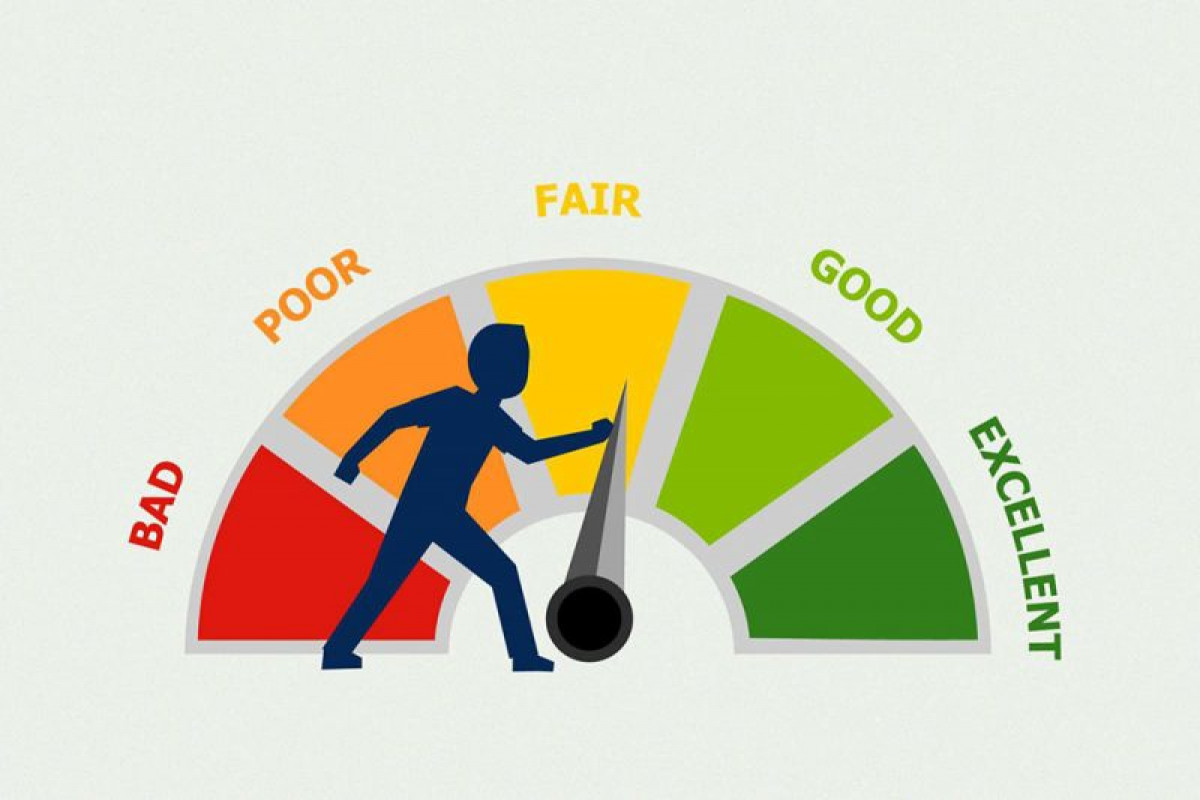Newsroom
Credit File Vs Credit Score: What’s the Difference?

- Oxcel Finance
- December 28, 2023
Having a clear idea about certain finance terms can put you at a disadvantage, especially when conducting business with a financial institution or an individual. But do you know what's worse than not knowing? Confusing one information for another!
People often think that a credit file and a credit score are the same things when they are not. This confusion is because these two terms are like the two sides of the same coin, but they essentially don’t depict the same picture. Let me help you get an insightful idea of the whole thing.

Things to Know About a Credit File
What better way to learn about something than learning with a proper set of Q&A right? In this part, you’ll get to know all the basic information about a credit file. This will help you get a grasp of this whole thing.
What’s a Credit File?
A credit file is a database where specific information about you and your financial history is stored under your name.
This file contains basic information about the history of your credit and the service providers. The information contained in this file is used for profiling and assessing certain things. We’ll get back to that later.
What Kind of Details Does a Credit File Contain?
The information and details of a particular credit file might not be identical to another. Different agencies store information based on what they consider to be important. But here is a general idea of what kind of details is usually registered in your file -

-
Your details (your name, age, gender, driver's license copy, employer information, and address are registered here)
-
Details of your current credit accounts (account type, limit, name of the provider)
-
Your applications for credit cards, mortgages, loans, and whether you’re a guarantor of any particular loan or something
-
Details about any agreements of debts
-
Whether you have a late payment history
-
Details of your joint account (if you have one) or if you’ve applied for one
-
If you’ve got any ‘Default’ on a debt
At this point, you must consider who keeps track of your financial activities and registers them. Well, that’s what you’re going to find out next.
Who Stores and Updates My Credit File Details?
Many registered agencies are entrusted with this task. They are known as credit report agencies or credit bureaus. 3 credit reporting agencies in Australia are considered the main ones. Credit providers mostly put their trust in these 3 agencies for reliable assessments and reports -
-
Equifax
-
Illion
-
Experian
These agencies' policies, assessment factors, credit reports, and scoring systems can vary. Your credit report will look like a creditor depending on the agency they reach out to. So, I’d suggest you keep track of your files in all 3 of these credit report agencies.
Who Can Access My Credit File?
The concerned authorities have access to your credit file. What someone can access is your credit report. So, what’s a credit report? Your credit report is a summary or statement of all the credit history and details on your credit file.
Your credit file is not accessible to everyone. Only the people with "permissible purpose" will be allowed to have your credit report. Usually, when you apply for a loan or mortgage, your potential creditors collect a copy of your credit report to determine your creditworthiness.
The creditors must give the agencies an application to get the credit report. And as soon as they do, the application details are also stored in your credit file database.
Things to Know About a Credit Score
Now it’s time to explore the term ‘credit score’ and all the ins and outs of it. A credit score is more important than a credit file or credit report, as most creditors only check the credit score.
What is Credit Score?
A credit score, also known as a credit rating in Australia, is an extract of the details on your credit file that has been transformed into a numeric expression. The method of calculating your credit score varies from one agency to another. The rating system and the range can also be different.
Most agencies’ credit score ranges from 1 to 1000 or 1 to 1200. Your score is assessed based on your financial activities and history registered in the credit file. Every time there’s a change in your credit file, there will be a change in your credit score.
Who Provides the Credit Score?
The same agencies provide a credit score with your credit file; we already know who they are. Equifax, Illion, and Experian are surely reliable for accurate assessment; however, a score considered good in a particular agency might need improvement in the other one.
Here’s a chart that should come in handy to get rid of the confusion -
|
Name of Agency |
Score Range |
Poor Rating |
Good Rating |
Excellent Rating |
|
EQUIFAX |
0 to 1200 |
0 - 509 |
622 - 725 |
833 - 1200 |
|
ILLION |
0 to 1000 |
1 - 299 |
500 - 699 |
800 - 1000 |
|
EXPERIAN |
0 to 1000 |
0 - 549 |
625 - 699 |
800 - 100 |
This chart contains the grading system of Australia's three main credit report agencies. As you can see, the higher your credit score is, the better it is for your profile as a loan applicant.
What are the Determining Factors?
To keep your credit score on track, it’s important to know the factors that influence it. Not just that! It’s also important to know how much influence a particular factor can have on the result. 5 factors are taken into account while calculating your credit score.

Here they are -
-
Payment history (These states whether you make your credit payment regularly and on time. This is the most important factor for the assessment, as 35% of the score depends on it).
-
Amount owed (This says how much debt you owe to credit accounts and creditors. 30% of the whole assessment depends on this factor)
-
Length of credit history (This depicts the average age of your credit accounts. It has a 15% influence on the whole calculation)
-
New credit (How many credits you’ve opened or applied for within a certain period. This factor has 10% importance)
-
Credit mix (Factors in how many credit accounts you have. It also has 10% importance of the overall assessment.)
Importance of A Decent Credit File & Good Credit Score
The information extracted from your credit file is summarized and formed into a credit report. Then the filtered details on the credit report are used to calculate your credit score. So, it’s quite obvious how important it is to know about the financial characteristics of an individual.
Here is why you should have a decent credit file and a good credit score -
-
Negative information on your credit file can affect your loan or credit approval for a long time
-
If you have a bad credit score with negative reports on the file, then the lenders see that as a risk
-
Creditors always take the details into account to decide whether you should get a loan or not
-
A good credit score can help you get a good deal with a low-interest rate
-
A good credit score makes you more eligible for a loan or mortgage
-
A decent credit file with no defaults can improve your credit score
-
Your credit score is used to measure your creditworthiness
FAQ
Can I check my credit report and credit score?
Ans: The answer is yes! All three main agencies in Australia allow you to check your credit report for free once a year. Once you apply for a credit report, it will be sent to you within ten days via email or mail. However, our credit score won’t be included in your credit report. You need to apply for it separately.

How long does negative information stay on a credit report?
Ans: A particular piece of negative information can stay on your report for 5 to 7 years. That means it will affect your credit score and creditworthiness for seven years, and you’ll have nothing to do about it. So, it would be wise if you always were careful about that.
What’s a Bad Credit Score?
Ans: Whether a credit score is good or bad depends on the agency providing the score. Different agencies have different score ranges. However, in Australia, 300 to 500 can be considered a bad credit score for all three main agencies.
My Take on This Matter
Financial literacy is one of the most important things in this century. Having a vague idea of a financial term can cost you a good opportunity and a good deal. Just knowing about a credit file and credit score is not enough. You must monitor them and keep them on track to maintain good financial health.
This article on ‘Credit File vs. Credit Score: What’s the Difference’ should give you a clear idea about the ins and outs of a credit file and credit score. Make the right use of the knowledge you’ve gathered here to make your credit-related experiences stress-free. Hopefully, you found this article helpful.

















































































































































































